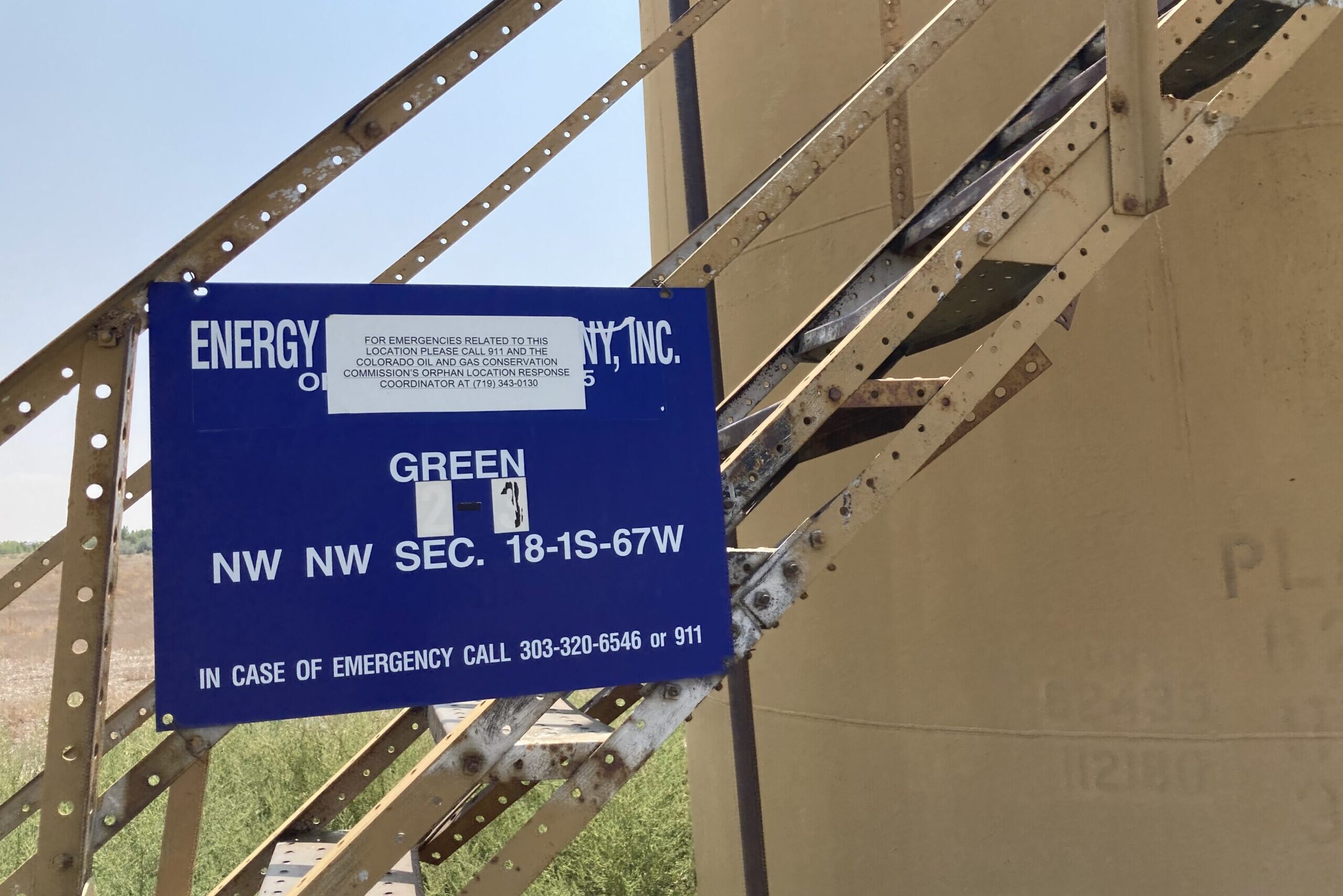
Oil and gas companies in Colorado will now have more financial responsibility to plug aging wells and remove contaminants from surrounding areas under new rules approved by state regulators this week.
It’s the first overhaul of the financial assurance process for oil and gas companies in decades, according to the Colorado Oil and Gas Conservation Commission, which unanimously passed the rules Tuesday. The commission requires oil and gas companies drilling in Colorado to secure bonds as a guarantee to plug wells that are no longer being used.
In a statement, Commission Chair Jeff Robbins called the regulations, “a model that is now the most robust in the country with by far the highest financial assurance requirements.”
Unplugged wells can leak harmful greenhouse gasses like methane and other pollutants, including benzene, which can contaminate the surrounding air, ground and water. Residents and environmental groups have pushed the state to hold the oil and gas industry more accountable for its aging wells.
The new bonding requirements require companies to secure larger financial guarantees for wells to make sure oil-field sites are cleaned up. The new rules could prove an incentive for companies to plug those wells rather than leave them to the state. Over the years, the backlog of so-called “orphan” wells managed by the state has grown. According to commission spokesperson Megan Castle, there are at least 625 orphaned sites in the state, with more expected in the coming years.
Developed over the last year, the financial assurance ruling creates six different tiers of bonding requirements for operators dependent on the amount of oil and gas they produce from their wells.
High-producing companies are eligible to pay blanket bonds to cover their entire portfolio, while low-producing companies could be responsible for insuring the cleanup costs for each of their wells. Some companies could also present their own financial assurance plans “based on individual circumstances,” under the recently approved rules.
The changes could mean high-producing companies insuring amounts 10 to 30 times higher than what they currently do, according to the commission. To maintain oversight of well transfers, companies who sell low-producing wells will need to keep their financial assurance intact until the buyer presents their own.
The commission will also charge operators a new well registration fee that will go into a fund for plugging orphan wells. The fee is expected to draw $10 million annually and “will provide consistent, dedicated funding to remediate these sites,” said Dan Gibbs, the executive director of the Colorado Department of Natural Resources.
In addition, Colorado is expected to receive $10 million to $15 million a year over the next decade from the federal government to plug orphan wells, part of the bipartisan infrastructure bill signed into law last year. The financial assurance rules will also apply to wells on federal land for the first time, according to the commission.
Lynn Granger, the executive director of the Colorado division of the American Petroleum Institute, which represented oil and gas operators during the commission’s proceeding, said the rules are a “workable framework for most of Colorado’s natural gas and oil industry.”
“These provisions are the strictest in the nation while simultaneously acknowledging that one size does not fit all operators,” Granger said. “We anticipate that in years to come operators will plug and reclaim thousands of wells at no cost to the state.”
Colorado Communities for Climate Action, a coalition of 40 local governments, applauded the rules for the potential to plug more wells and prevent further contamination.
“Every community in Colorado with oil or gas drilling will be safer as a result of this new requirement for financial assurances,” said Clear Creek County Commissioner George Marlin, who is also president of Colorado Communities for Climate Action.
Some environmental groups had called for all oil and gas operators to bear the full costs of cleaning up their wells. Andrew Klooster, a field advocate for nonprofit Earthworks Colorado, said it is essential that the state enforce the financial assurance rules and collect and share data.
The new rules will go into effect April 30.
More Colorado oil and gas news:
- Environmental group says analysis shows oil and gas companies have used ‘forever chemicals’ to frack wells across Colorado
- Oil company that contaminated soil, groundwater near Frederick school could have $2 million fine reduced
- The federal government is poised to crack down on methane from the oil and gas industry. Can it learn anything from Colorado?








